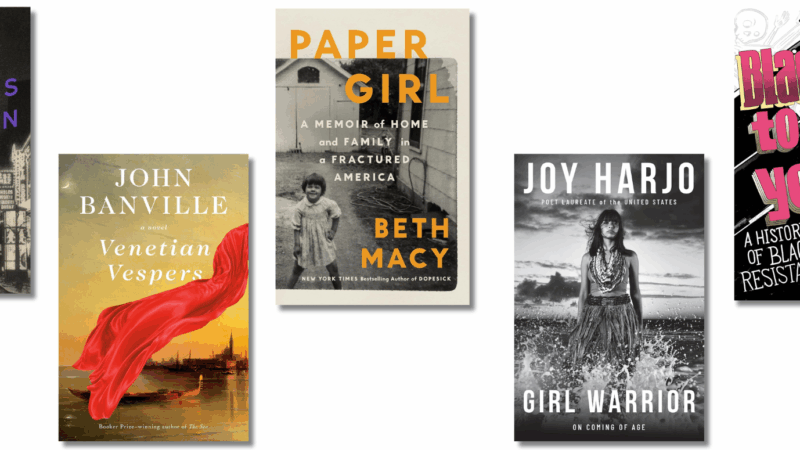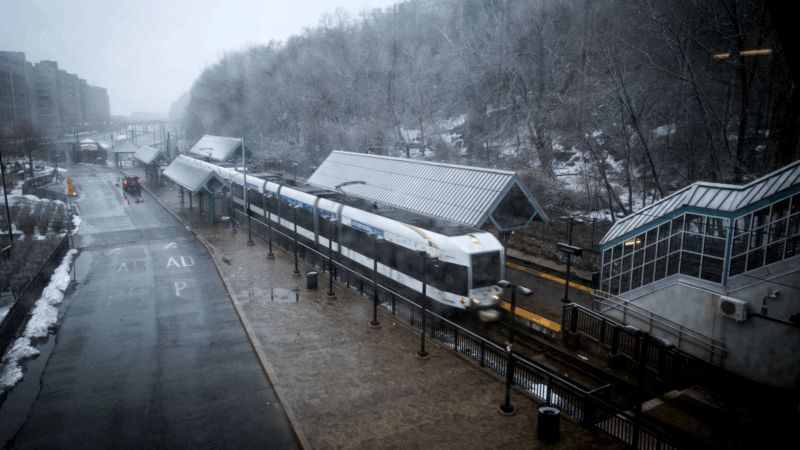New books this week: Thomas Pynchon’s first novel in 12 years, and much more
Rejoice, dear readers, and prepare to welcome a publishing event that’s almost as rare — and potentially as disorienting — as the emergence of a brood of cicadas. Thomas Pynchon, our literary recluse par excellence, has peeked out from wherever he’s been hiding and shared with the world some much-appreciated proof of life: his first new novel since 2013.
Shadow Ticket promises vintage Pynchon: a madcap mystery set in a discrete historical moment — in this case, the depths of the Great Depression — and beset by virtually every bonkers conspiracy you can conceive of, and many you can’t yet. Hicks McTaggart, the private eye unlucky enough to ply this trademark Pynch-topia, can expect his hands full and dance card filling fast, if only he could make out its inscrutable jottings.
Now, some will protest that front-page news each day provides more than enough paranoia fodder already, to which I’d say … well, fair enough. For those folks, this week’s book releases also offer another celebrated novelist, a journalist mapping her hometown’s decline, and a variety of angles on embodied political resistance.

Shadow Ticket, by Thomas Pynchon
But first, back to our man Hicks. Just a week or two after another Pynchonian picaresque, 1990’s Vineland, received a loose and lauded screen adaptation — Paul Thomas Anderson’s One Battle After Another — it’s clear the printed page isn’t exactly safe either. Even at 88 years old, America’s most venerable paranoiac continues to display a preternatural feel for the Venn diagram of silly, surreal and genuinely frightening. This time it’s the disappearance of a cheese heiress that gets the action moving, and draws our hapless protagonist into a rabbit hole whose depths he — and by extension, we — can only hope to guess at.

Venetian Vespers, by John Banville
Among writers currently at work, few can match Banville’s combination of fecundity and critical acclaim. Simply put, the Irish high stylist, genre technician and Booker Prize winner can really churn ’em out. His latest one-off novel is a moody period piece that finds an unhappy British couple stalked by an uncanny menace, as sinister-seeming as it is difficult to define, among the socked-in canals of fin de siècle Venice.

Paper Girl: A Memoir of Home and Family in a Fractured America, by Beth Macy
In Dopesick, and in its TV adaptation, Macy applied a lens wide enough to contain the victims, villains and complicated context of the opioid crisis in Central Appalachia. This time, it’s personal, as the journalist heads for home. Paper Girl layers memoir with reporting to produce an unsettling portrait of her native Urbana, Ohio, battered all but unrecognizable by opioids and other malignant social currents.

Girl Warrior: On Coming of Age, by Joy Harjo
Earlier this year on NPR’s Wild Card, Harjo acknowledged that her writing has a habit of leading her back to adolescence — both the memory of her own and the dramatic, occasionally traumatic transformation itself. “I went through so much during that coming-of-age period,” said the former U.S. poet laureate, author of Poet Warrior, who has woven this hybrid of memoir and advice to girls who stand on the precarious cusp of growing up. “Maybe I’m just working out trauma, but I want to be helpful. I think even in trauma, that’s where you learn about yourself — who you are and what you’re made of.”

Black Arms to Hold You Up: A History of Black Resistance, by Ben Passmore
Passmore won an Eisner Award for Sports Is Hell, a trenchant invention brewed from violence, riots and that NPR’s reviewer described as “a myth without a moral.” In Your Black Friend, the shortest of NPR’s 100 favorite comics, the moral — or thesis, at least — seems a bit clearer: a quick, cutting comment on the little indignities inflicted on Black people even by their well-meaning white friends. In this new work of comics nonfiction, Passmore raises the scale from the personal to the historical, tracing a lineage of racial injustice and radical resistance with his characteristic acerbic wit and impetuous visual style.
Northeast readies for a major winter storm, with blizzard warnings in effect
New Jersey through Massachusetts could see 2 feet of snow. New York City's mayor said the city had not "seen a storm like this in a decade."
Mexican army kills leader of Jalisco New Generation Cartel, official says
The Mexican army killed the leader of the powerful Jalisco New Generation Cartel, Nemesio Rubén Oseguera Cervantes, "El Mencho," in an operation Sunday, a federal official said.
Ukraine’s combat amputees cling to hope as a weapon of war
Along with a growing number of war-wounded amputees, Mykhailo Varvarych and Iryna Botvynska are navigating an altered destiny after Varvarych lost both his legs during the Russian invasion.
University students hold new protests in Iran around memorials for those killed
Iran's state news agency said students protested at five universities in the capital, Tehran, and one in the city of Mashhad on Sunday.
Pakistan claims to have killed at least 70 militants in strikes along Afghan border
Pakistan's military killed at least 70 militants in strikes along the border with Afghanistan early Sunday, the deputy interior minister said.
Team USA faces tough Canadian squad in Olympic gold medal hockey game
In the first Olympics with stars of the NHL competing in over a decade, a talent-packed Team USA faces a tough test against Canada.






